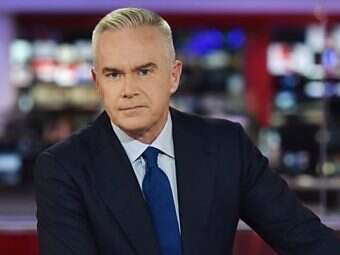
The BBC News website will use “semi-automated journalism” in its election coverage for the first time next month to write up the results for all 650 UK constituencies “minutes after” votes are declared.
Journalists will build story templates in advance designed to “handle all possible situations and contingencies” following the close of polls on Thursday 12 December, according to the BBC.
Results data will then be automatically processed using these templates to produce text articles for every constituency that will be edited by journalists before publication. Forty will also be written in Welsh.
The BBC will use a Twitter bot, @bbcelection, to automatically tweet out the result for each constituency, the corporation has said.
The corporation has also assigned its first digital election reporter to follow the campaign trail. Joe Tidy will work with media editor Amol Rajan to report on the digital campaigns being run by the parties and the role of social media in the election.
News at Ten anchor Huw Edwards (pictured) will lead the BBC’s election night coverage alongside Reeta Chakrabarti, Andrew Neil, Tina Daheley and Jeremy Vine with his “swingometer”.
Edwards said: “Our aim in BBC News is to provide the best possible service to voters in a very uncertain world.
“It is my job – both during the campaign and on the night – to guide viewers through the most important election for decades.
“I hope to put my 35 years of experience to good use and to offer our viewers a service they can trust.”
The 2019 election programme team will include BBC political editor Laura Kuenssberg, Europe editor Katya Adler, economics editor Faisal Islam, Rajan and Professor Sir John Curtice.
BBC presenters in key constituency locations, including Naga Munchetty, Andrew Marr, Martha Kearney, Nick Robinson and Lucy Manning will bring news and results from across the UK throughout the night.
Sarah Smith and Kirsty Wark will broadcast live from Scotland while Sophie Raworth will analyse the results as they come in on a giant constituency map of the UK.
The exit poll and later the election result will be projected onto Old Broadcasting House, home of the main BBC News studio, in central London.
On radio, Jim Naughtie and Emma Barnett will host live election night coverage on BBC Radio 4 through to the Today programme the following morning, with BBC Radio 5 Live joining for a simulcast from midnight.
Coverage on the day after polling day will be led by Emily Maitlis with Clive Myrie broadcasting from Downing Street as it awaits the next Prime Minister.
Coverage during the campaign will include Andrew Neil interviewing party leaders in a prime-time TV slot, yet to be announced.
The BBC will offer “real-time coverage and analysis of the campaign” on the BBC News Channel, via a daily online live page, with BBC Reality Check also checking claims made by politicians.
Your Questions Answered will give voters the chance to put their questions to BBC correspondents using the hashtag #BBCYourQuestions.
BBC News programmes including BBC Breakfast and Radio 1’s Newsbeat will broadcast from ten towns and cities across the UK, as well as the BBC News Channel, 5 Live and the BBC News at Six and Ten.
The first broadcast will come from Leeds this week, with the series culminating in the final week of the campaign with a special day of coverage called “Your Election” when the audience will set the agenda.
In Scotland, a new late night campaign programme on BBC One Scotland with a focus on younger audiences will be launched.
Electioncast, an election-themed spin-off of the award-winning Brexitcast, will broadcast weekly on Radio 4 during the campaign and on the BBC News Channel, presented by Adam Fleming.
Picture: BBC
Email pged@pressgazette.co.uk to point out mistakes, provide story tips or send in a letter for publication on our "Letters Page" blog
